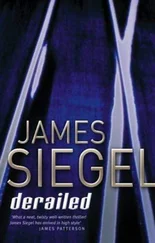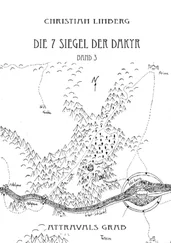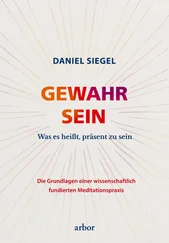Paul said, “We can’t help you. I told you, we’re not political. We have no money . . .”
He was interrupted by a rifle butt to his midsection. Delivered with enough force and precision to bring him straight to his knees.
“Paul!” Joanna recoiled, the obvious reaction when your husband is physically assaulted right in front of your eyes.
“When I ask a question, answer me,” the man said. “You must remember this.”
Paul attempted to get up, for Joanna’s sake, if not his own. He felt her fear as if it were a physical entity, cold and dense and implacable. But he couldn’t straighten up; his stomach was on fire. His eyes were tearing.
“You are political prisoners of the Revolutionary Armed Forces of Colombia. Comprende? ”
“Yes,” Paul said, still on his knees, still gasping from the vicious blow to his solar plexus.
“You won’t try to escape. Comprende? ”
“Yes.” Paul gave it one more try, gathered himself in an effort to scale what seemed like a sheer wall of pain, and finally managed to make it to a barely standing position.
“You step away from the door when we come in the room. You step away from the door when we leave. You stay away from the windows. Yes?”
“Yes, we understand.”
“How are you feeling?” He was addressing Joanna.
“I’m nauseous.” Her voice shaky if even-toned, as if she were desperately trying to maintain some semblance of composure, but pretty much failing. “I feel like throwing up.”
He nodded as if he’d expected this. “Escopolamina,” he said.
“What?” Joanna asked, breaking the don’t-ask-questions rule, this time apparently without consequences.
“A street drug. They use it to rob the turistas here.” He shook his head and uttered a dismissive sigh, as if that kind of thing—robberies and such—was beneath him. “We were late—she was frightened, huh.”
Galina, Paul thought. He was referring to Galina.
“She put something into our coffee,” Joanna stated flatly.
The man shrugged. “You’ll feel better tomorrow. Pretty much.”
He turned and walked to the door, then hesitated there as if waiting for someone to open it. He turned and stared at them with an expression of clear expectance.
What?
“Oh,” Paul said. He took Joanna’s hand and led her to the opposite wall.
“Good,” he said, as if addressing children who’d cleaned their room just like they’d been told to.
He walked out, locked the door behind him.
THEY SPENT MOST OF THEIR TIME ALONE REMINISCING.
They took turns remembering all the things they liked about New York. Even things that, oddly, they hadn’t liked before—holiday crowds, for instance. The swarm of visitors that executes a stranglehold on the city from Thanksgiving to Christmas, creating bottlenecks from Times Square to Houston Street. Paul had always found the human traffic jams annoying and suffocating, only now he remembered them as joyous and even soothing. The inescapable smell of garbage waiting to be picked up was an aroma to be missed and cherished. The obstacle course of construction cranes, pothole barriers, and squat Con Ed vans every New York taxi was forced to navigate on its way from one side of the city to the other was a loop-de-loop of urban excitement.
It was all a matter of perspective. And right now their perspective was skewed through a rat hole in Colombia.
They remembered places outside the city too. They retraced every single one of their vacations.
The rough-hewn cabin in Yosemite, where they’d gone when they were just dating but already moon-eyed. The Sea Crest Motel in Montauk that opened onto the whitest sand they’d ever seen. The ridiculously expensive but extravagantly lovely George V in Paris—honeymoon heaven.
They tried to reconstruct every great meal they’d ever eaten—Prudhommes to Pinks. Eclectic appetizers, bountiful entrées, sugary-sweet desserts.
They recounted their first meeting—two tired business travelers sharing the same gate. They theorized what the odds were of running into each other like that, of falling in love, of getting married.
They did all of this as a way to pass the time.
They talked about the past so they could avoid thinking about the future. There was an air of complete and utter unreality about this. Was this really happening to them—it couldn’t be, could it? Kidnapped? Someone was going to yell stop and it was all going to end. It had to. It must.
Better to keep talking about the past.
ON WHAT MUST HAVE BEEN THEIR FOURTH DAY OF CAPTIVITY—IT was hard to keep count—Joanna said, “Why do you think they told us not to go near the windows?”
Paul, who’d gradually descended into listlessness, barely managed a shrug.
“Because we must be where people could see us,” Joanna answered her own question. “We must still be in Bogotá.”
“Okay.”
“We might be right on a street somewhere.”
Paul didn’t like where this conversation was heading. Joanna had that look, the I’m-ready-to-tackle-something look. The one he’d seen when she was going up against an entrenched superior, a human resources transgressor, the very look she got when she’d decided that hell or high water, she was going to have a baby.
“There’s just wood on the windows,” she said. “We can pry it off.”
“With what?”
“I don’t know. Our hands.”
“I don’t think we ought to do that.”
“Really? What ought we to do, then? Sit around and do nothing?”
Yes, Paul thought. So far, they hadn’t been told anything—why they were there, what was in store for them. The only thing that had actually been communicated to them was not to go near the windows. They’d been told that .
“Stay by the door and listen,” Joanna said. “If you hear them coming, I’ll stop.”
This was where he was supposed to volunteer for wood-prying duty. Or say no —it’s too dangerous, forget it, let’s just sit tight.
Joanna didn’t appear ready to be talked out of it.
Okay, he’d give it a try. The wood looked pretty well nailed in. One good shake with no results would probably be enough to dissuade her, send her back to the mattress, where they could continue to reminisce about old times.
Paul said, “I’ll do it.”
Joanna took up sentry duty by the door. Paul moved the shutters back, revealing two solid planks of wood. He thought he could hear faint sounds of traffic out there.
He was able to grip one plank by its bottom. He pulled.
There was some give there.
You could see the wood wobble before snapping back into place. Joanna could certainly see it.
“I told you,” she whispered.
Paul gave it another strong pull. This time the wood gave even more. He’d opened it a good half inch.
Yes, there was definitely traffic out there. Fairly steady too—they had to be close to a major thoroughfare. Somewhere people were going about their perfectly ordinary lives, shopping, eating, heading to work, all within earshot of two kidnapped Americans.
Paul resumed with renewed vigor, gulping in sudden streams of sweet-smelling air. He developed a steady rhythm, pull, rest, pull, rest. Slowly, bit by bit, the wood yawned open; he could see a red slate tile—a courtyard?
Joanna crouched by the door, a bundle of nervous energy urging him on with her eyes.
Suddenly, the wood snapped—broke right in half. It sounded like a gunshot, louder, and Paul stood there with half a plank of wood in his hands, waiting for the door to burst open with armed guards.
Joanna stiffened—put her ear to the door. Paul held his breath and waited.
Читать дальше












